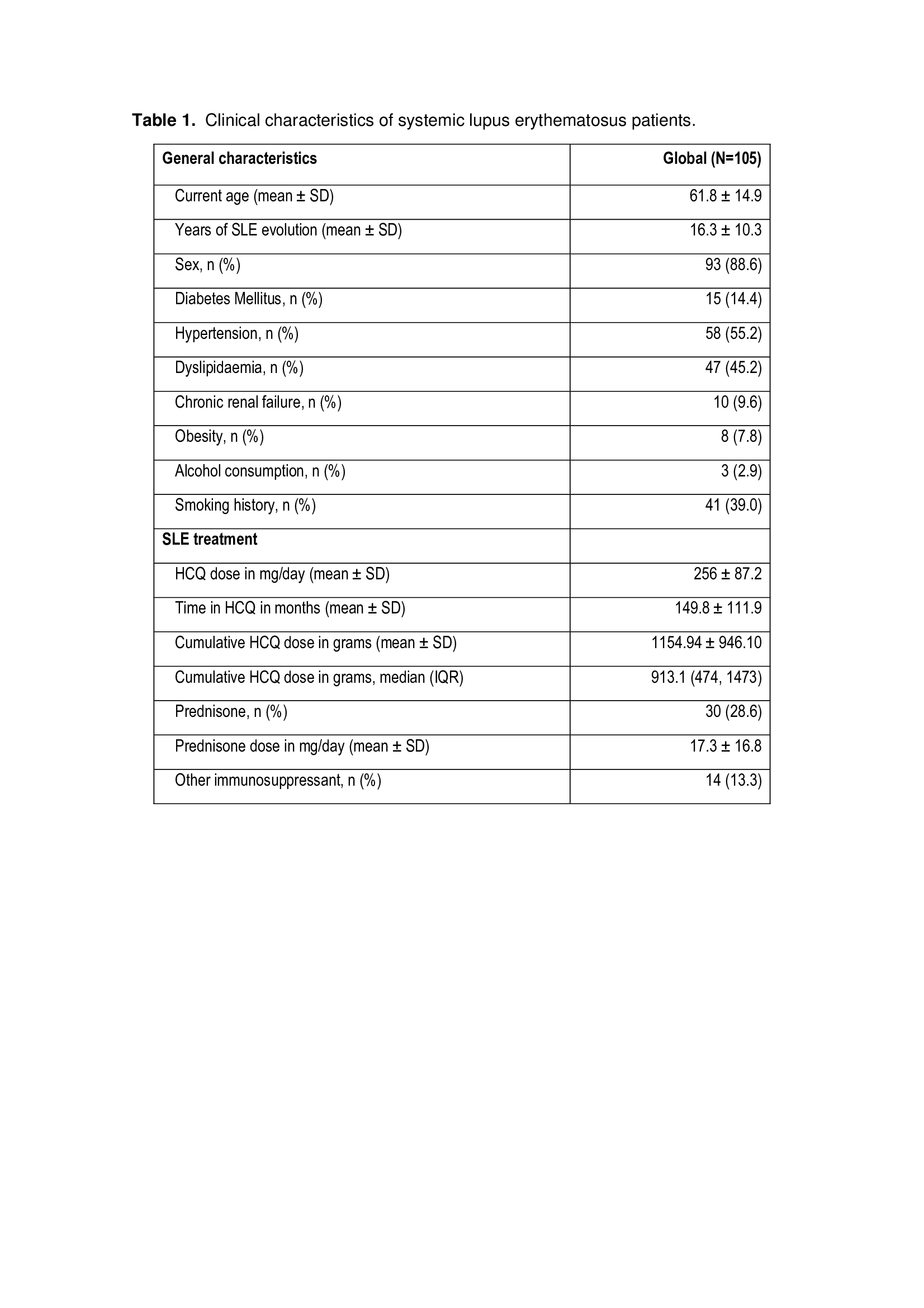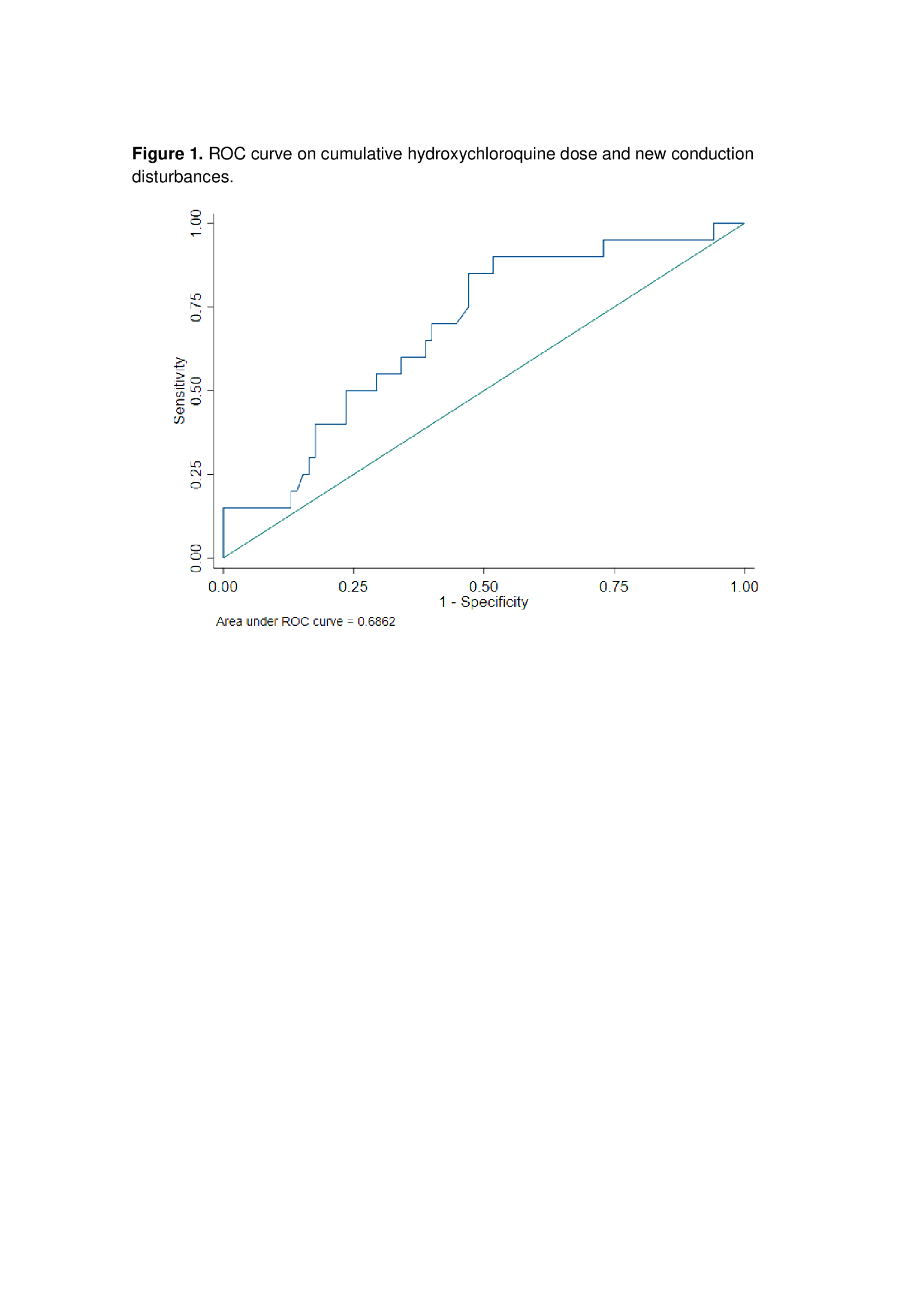Session Information
Session Type: Poster Session A
Session Time: 9:00AM-11:00AM
Background/Purpose: Hydroxychloroquine (HCQ) is a widely used drug in Systemic Lupus Erythematosus (SLE) that can cause cardiac alterations such as arrhythmic events in the short-term and dose-dependent cardiomyopathy in the medium to long-term. The cardiological implications of HCQ accumulation in these patients in the medium to long-term is unknown.
Methods: Single university hospital observational study of all consecutive SLE patients who had an electrocardiogram (ECG) at baseline and at least one ECG at follow-up. New conduction disturbances were assessed by ECG, defined as atrioventricular block, bundle branch block or QT interval prolongation. ECGs were extracted from the medical record and interpreted at baseline and for 15.2 years (95%CI 13.24-17.16) of follow-up. We defined cumulative HCQ (cHCQ) as the total grams of HCQ that had been administered. A ROC curve analysis was performed to determine the optimal cut-off point for sensitivity and specificity.
Results: We studied 105 (93 female/12 male) SLE patients with a mean (±SD) age of 61.8±14.9 years. The mean daily dose of HCQ in our sample was 256 mg per day (Table). The ROC curve showed a moderate diagnostic ability for new conduction disturbances with an area under the curve of 0.69 (95% CI 0.59 – 0.77) (Figure). The highest efficacy cut-off point was cHCQ: 4097g (Sensitivity 15%; Specificity 100%) and the optimal cut-off point was cHCQ: 901g (Sensitivity 85%; Specificity 52.9%). This cut-off point was reached with a mean HCQ treatment in our sample of 9.7 years. High grade atrio-ventricular block was found in 5 patients. In all of them the cHCQ dose was over 901g.
Conclusion: According to our study, 901g of cumulative HCQ dose is a good cut-off point for performing a protocolized ECG to rule out cardiac conduction disturbances in patients with SLE and chronic HCQ treatment. This is equivalent to 9.7 years of treatment with the mean HCQ dose use in our sample.
To cite this abstract in AMA style:
Lasa C, Herrero-Morant A, Zubiaur J, Margarida A, Pérez R, Blanco R. Determining the ECG Cut-off Point in Systemic Lupus Erythematosus Patients Undergoing Hydroxychloroquine Therapy [abstract]. Arthritis Rheumatol. 2023; 75 (suppl 9). https://acrabstracts.org/abstract/determining-the-ecg-cut-off-point-in-systemic-lupus-erythematosus-patients-undergoing-hydroxychloroquine-therapy/. Accessed .« Back to ACR Convergence 2023
ACR Meeting Abstracts - https://acrabstracts.org/abstract/determining-the-ecg-cut-off-point-in-systemic-lupus-erythematosus-patients-undergoing-hydroxychloroquine-therapy/


